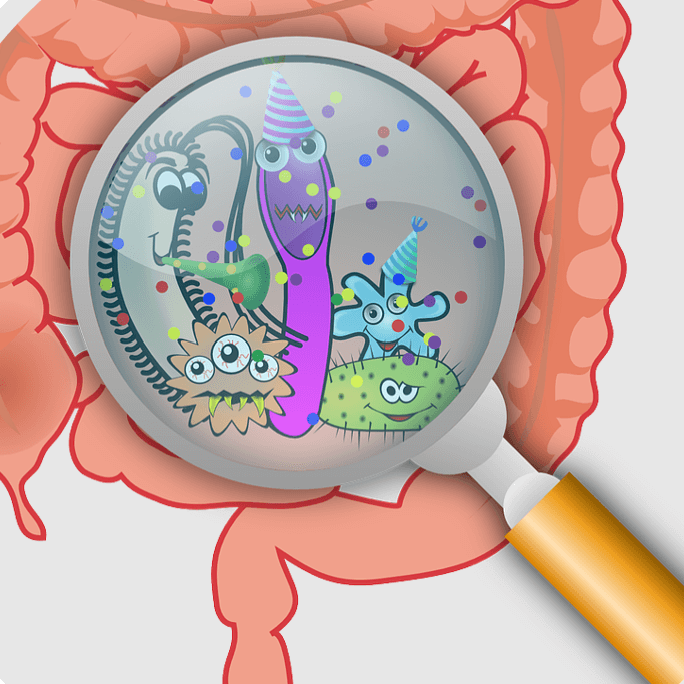
1) Definition
The microbiome is the collection of microbes from bacteria, fungi, protozoa and viruses that live on and in our body, which perform symbiotic functions to maintain and also reflect our state of health, both physically and mentally. The microbiome can weigh as much as our brain and produces a wide variety of chemical substances that our body cannot produce by itself. Our largest microbiome exists in our large intestine and helps to process food and liquid intake to create optimal bodily function.
2) Description
The gut microbiome and our brains have a direct, two-way, high-speed connection via the vagus nerve. The brain and microbiome are in continual communication to monitor and stabilize body functions, from your toes to your brain. Many of our para-sympathetic nerve responses (breathing, heart rate, inflammation, relaxation) are triggered via vagus nerve communications.
The state of our gut microbiome depends upon the state of our health. As our health changes, so does the composition of our microbiome. When we are sick, the microbiome is different from when we are well. Because brain function is dependent on the chemicals produced in the microbiome, our brain health is being proven to connected to our microbiome health.
An important contributor to our health is the food we eat and the quality of our lifestyle. Eat a lot of junk food and inflammatory food, smoke tobacco, breathe polluted air – and your microbiome changes in response. These changes affect not only our bodies but our brains as well. Scientific research is finding that by altering the gut microbiome, we can have an effect on mental health.



